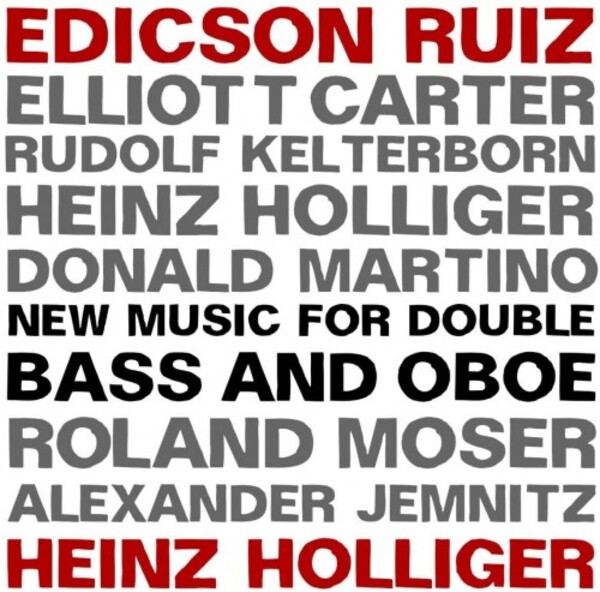
New Music for Double Bass and Oboe
£13.25
In stock - available for despatch within 1 working day
Despatch Information
This despatch estimate is based on information from both our own stock and the UK supplier's stock.
If ordering multiple items, we will aim to send everything together so the longest despatch estimate will apply to the complete order.
If you would rather receive certain items more quickly, please place them on a separate order.
If any unexpected delays occur, we will keep you informed of progress via email and not allow other items on the order to be held up.
If you would prefer to receive everything together regardless of any delay, please let us know via email.
Pre-orders will be despatched as close as possible to the release date.
Label: Phil.Harmonie
Cat No: PHIL06032
Format: CD
Number of Discs: 1
Release Date: 10th September 2021
Contents
Works
Figment no.3 for solo double bassFigment no.6 for solo oboe
Preludio e Fuga for solo double bass
Unbelaubte Gedanken zu Holderlin 'Tinian'
Sonata for solo double bass, op.36
Kontrabass-Notenheft
Frammenti (5) for oboe and double bass
... sehr mit Basstimme sanft... (Hommage a Friedrike Mayrocker)
Fur Erich for solo oboe
Artists
Edicson Ruiz (double bass)Heinz Holliger (oboe)
Works
Figment no.3 for solo double bassFigment no.6 for solo oboe
Preludio e Fuga for solo double bass
Unbelaubte Gedanken zu Holderlin 'Tinian'
Sonata for solo double bass, op.36
Kontrabass-Notenheft
Frammenti (5) for oboe and double bass
... sehr mit Basstimme sanft... (Hommage a Friedrike Mayrocker)
Fur Erich for solo oboe
Artists
Edicson Ruiz (double bass)Heinz Holliger (oboe)
About
These new compositions written for Edicson Ruiz by Heinz Holliger, Rudolf Kelterborn and Roland Moser illuminate a few new landing points on the dark continent of the double bass. Of course they are not totally without presuppositions, a fact demonstrated by a few of the previously unknown historical works on this CD, which (with the exception of Elliott Carter’s Figment III) are recorded here for the first time.
The Cinque Frammenti (1961), written by Donald Martino (1931-2005) for oboe and double bass, manifests an encounter: the work is dedicated to two superb American protagonists of contemporary postwar music: Josef Marx “with his fire Hoboe” (Stefan Wolpe) and Bertram Turetzky, who rediscovered the double bass as a solo instrument and initiated what is by now an overwhelming number of new compositions.
The fragments, however, are anything but a spectacular celebration of these pontifical interpreters or display of their extraordinary abilities. The music has no immediately obvious Salti mortali to offer. It is instead a highly differentiated intimate dialogue leaning towards introspection in a rare constellation of oboe and bass that appears to be structured by a few merging points.
Martino internalized the serial technique and music writing process into the free declamatory composition-style of these fragments, calling to mind his tutelage under Luigi Dallapiccola. But are these really “fragments”?
They certainly don’t seem fragmentary, as they are characterized by a generous time articulation and spaciousness out of which the duo partnership is able to express itself. In the fourth fragment, a brief condensation evolves into a very quietly played “il più presto possible” pattern, which quickly reopens into a relaxed Allegretto.
Error on this page? Let us know here
Need more information on this product? Click here